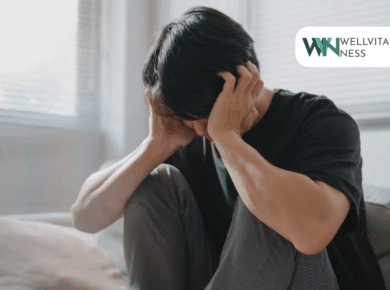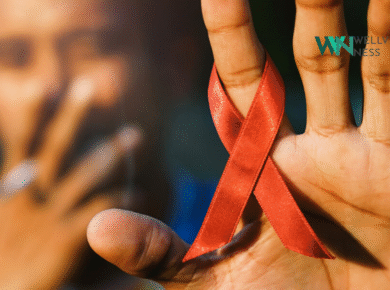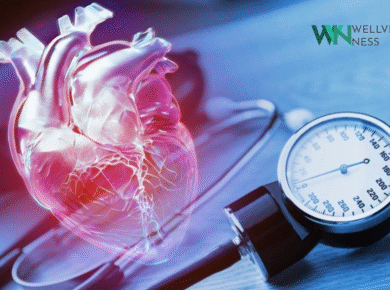Chickenpox, also known as varicella, is a highly contagious viral infection that mainly affects children but can also occur in adults. Characterized by an itchy rash and red spots or blisters all over the body, chickenpox is usually mild in children but can cause serious complications in adults or those with weakened immune systems.
Table of Contents
What is Chickenpox?
Chickenpox is an infection caused by the varicella-zoster virus (VZV). It spreads easily from person to person and is most common in children under 12 years old. Once a person has had chickenpox, they usually develop lifelong immunity, but the virus remains dormant and can reactivate later in life as shingles.
Causes of Chickenpox
The varicella-zoster virus spreads through:
- Airborne transmission (coughing, sneezing)
- Direct contact with fluid from chickenpox blisters
- Contaminated surfaces (less common)
A person is contagious 1–2 days before the rash appears and until all blisters have crusted over (usually 5–7 days).

Symptoms of Chickenpox
Symptoms typically develop 10–21 days after exposure to the virus. The infection usually follows this pattern:
1. Early Symptoms (Prodrome Stage)
- Fever
- Fatigue
- Loss of appetite
- Headache
2. Rash Development
- Begins as red spots (often on the chest, back, and face)
- Evolves into itchy, fluid-filled blisters
- Blisters burst, dry out, and form scabs
The rash usually spreads to the entire body, including the scalp, inside the mouth, eyelids, and genital area. New blisters may continue to appear for several days.
Stages of Chickenpox Rash
- Macules: Small red spots
- Papules: Raised bumps
- Vesicles: Fluid-filled blisters
- Pustules: Cloudy blisters
- Crusting: Scabs form as the blisters dry out
The rash is extremely itchy, and scratching can lead to secondary infections or scarring.
Who is at Risk?
While most cases occur in children, the following groups are at higher risk for severe disease:
- Adults who never had chickenpox or were not vaccinated
- Pregnant women
- Newborns or premature babies
- People with weakened immune systems (due to HIV, cancer, chemotherapy, etc.)
Possible Complications
Although chickenpox is usually mild, it can lead to serious complications:
- Bacterial skin infections
- Pneumonia
- Encephalitis (brain inflammation)
- Reye’s syndrome (especially if aspirin is given)
- Shingles (later in life)
Diagnosis to avoid chickenpox
Doctors typically diagnose chickenpox based on:
- Medical history
- Physical examination of the rash
- In rare cases, a laboratory test (PCR or blood test) may be performed
Treatment of Chickenpox
Most chickenpox cases are mild and can be treated at home. However, appropriate care is essential to reduce symptoms, prevent complications, and promote faster healing.
1. Home Treatment for Chickenpox (Mild Cases)
If the patient is otherwise healthy, chickenpox usually resolves on its own within 7 to 10 days. The focus is on symptom relief and preventing secondary infections.
a. Relieving Itching and Rash
- Calamine lotion: Apply to soothe itching and reduce skin irritation.
- Oatmeal baths: A lukewarm bath with colloidal oatmeal (available in pharmacies) can relieve itching.
- Baking soda baths: Add a small amount of baking soda to bathwater to help dry blisters.
- Cool compresses: Apply clean, damp cloths to itchy areas for short-term relief.
- Loose clothing: Wear soft, breathable clothes to avoid irritation of the skin.
b. Medications for Symptom Relief
- Paracetamol (acetaminophen): Safe for reducing fever and relieving pain.
Avoid aspirin in children, as it can lead to Reye’s syndrome, a serious condition that affects the liver and brain. - Antihistamines: Over-the-counter oral antihistamines like diphenhydramine (Benadryl) can help reduce itching and allow better sleep.
- Topical anti-itch creams: Use with caution, and only under a doctor’s recommendation to avoid skin irritation.
c. Preventing Complications
- Keep fingernails short and clean to prevent skin infections from scratching.
- Maintain good hygiene: Bathe daily and keep blisters clean and dry.
- Encourage hydration: Give plenty of fluids like water, soup, and juice to prevent dehydration.
- Isolate the patient to avoid spreading the virus until all blisters have scabbed over.
2. Medical Treatment for Moderate to Severe Cases
In certain situations, chickenpox may require medical treatment, especially in adults, pregnant women, or people with weakened immune systems.
a. Antiviral Medications
- Acyclovir (Zovirax) or valacyclovir may be prescribed to:
- Shorten the duration of the illness
- Reduce the severity of symptoms
- Prevent complications
- These are most effective when started within 24–48 hours of the rash appearing.
b. Immunoglobulin Therapy
- Varicella-zoster immune globulin (VZIG) may be given to:
- Newborns exposed to chickenpox
- Pregnant women without immunity
- People with weakened immune systems
- Helps reduce severity and complications if given soon after exposure.
3. Hospitalization (Rare but Necessary)
Hospital care may be needed in cases of:
- Severe dehydration
- Respiratory complications like pneumonia
- Encephalitis (inflammation of the brain)
- Secondary bacterial infections of the skin
- Risk to vulnerable patients (e.g., cancer patients or transplant recipients)
Treatment in a hospital may include:
- Intravenous (IV) fluids
- IV antivirals
- Oxygen support if breathing is affected
- Antibiotics for secondary bacterial infections
Important Do’s and Don’ts
| Do’s | Don’ts |
|---|---|
| Use paracetamol for fever | Don’t give aspirin to children |
| Keep skin cool and clean | Don’t scratch or pop blisters |
| Stay hydrated and rest | Don’t go to school/work until recovered |
| Follow doctor’s advice on antivirals | Don’t self-medicate without consultation |
Important: Avoid scratching to prevent scarring and infections. Keep fingernails short and use mittens if necessary for young children.
How to Prevent Chickenpox
1. Vaccination
- The varicella vaccine is the most effective prevention.
- Given in two doses, usually at ages 12–15 months and 4–6 years.
- Also recommended for unvaccinated teens and adults who haven’t had chickenpox.
2. Avoiding Contact
- Keep infected individuals isolated until all blisters have crusted.
- Disinfect surfaces and practice good hand hygiene.
3. Post-Exposure Prophylaxis
- People exposed to chickenpox may receive the vaccine within 3–5 days or varicella-zoster immune globulin (VZIG) in special cases.
When to Seek Medical Help
Contact a doctor if:
- The rash spreads to the eyes
- High fever persists for more than 4 days
- Blisters become red, swollen, or leak pus
- The person has trouble breathing or walking
- You are pregnant or immunocompromised and exposed to chickenpox
Conclusion
Chickenpox is usually a mild but highly contagious illness that can be easily prevented with vaccination. Understanding its symptoms, treatment options, and prevention strategies helps protect yourself and others, especially those more vulnerable to complications.
By staying informed and taking timely action, chickenpox can be managed effectively and safely.
Frequently Asked Questions (FAQs) About Chickenpox
1. Is chickenpox contagious?
Yes, chickenpox is highly contagious. It can spread through direct contact with the rash, droplets from coughs or sneezes, and even by touching contaminated surfaces. A person is contagious from 1–2 days before the rash appears until all blisters have scabbed over.
2. Can adults get chickenpox?
Yes. While chickenpox is more common in children, adults who have never had the disease or the vaccine can still get it—and they often experience more severe symptoms and complications.
3. How long does chickenpox last?
The typical course of chickenpox lasts 7 to 10 days. The rash goes through several stages: red spots, blisters, pustules, and scabbing.
4. What should I avoid during chickenpox?
Avoid:
Scratching the rash, as it can cause scarring or lead to skin infections.
Aspirin, especially in children, due to the risk of Reye’s syndrome.
Contact with pregnant women, newborns, and people with weak immune systems.
5. Is there a vaccine for chickenpox?
Yes. The varicella vaccine is safe and effective in preventing chickenpox. It is given in two doses—first at 12–15 months and the second at 4–6 years of age.
6. Can chickenpox cause complications?
In some cases, yes. Chickenpox can lead to:
Skin infections
Pneumonia
Brain inflammation (encephalitis)
Shingles later in life
People with weak immune systems, adults, and pregnant women are at higher risk.
7. When should I see a doctor for chickenpox?
Seek medical help if:
The rash spreads to the eyes
There’s a high, persistent fever
Blisters become red or swollen (signs of infection)
The person has difficulty breathing, walking, or appears very ill
8. Can you get chickenpox twice?
It’s rare, but possible. Most people develop lifelong immunity after one infection. However, the same virus can reactivate later in life as shingles (herpes zoster).










